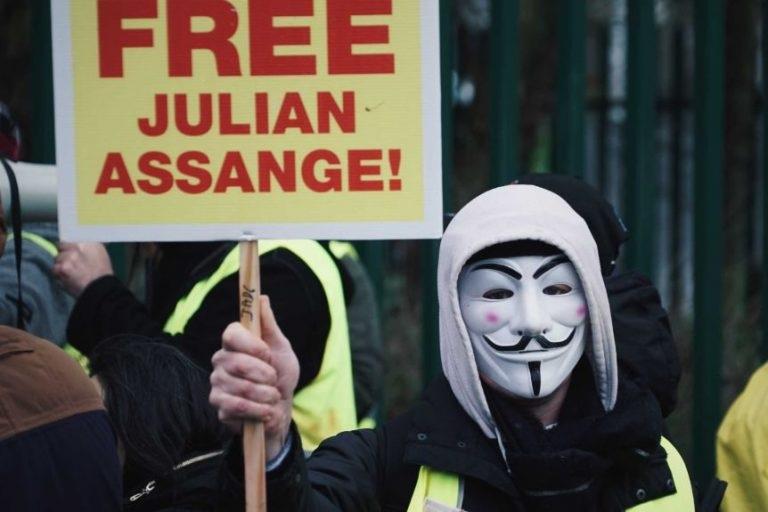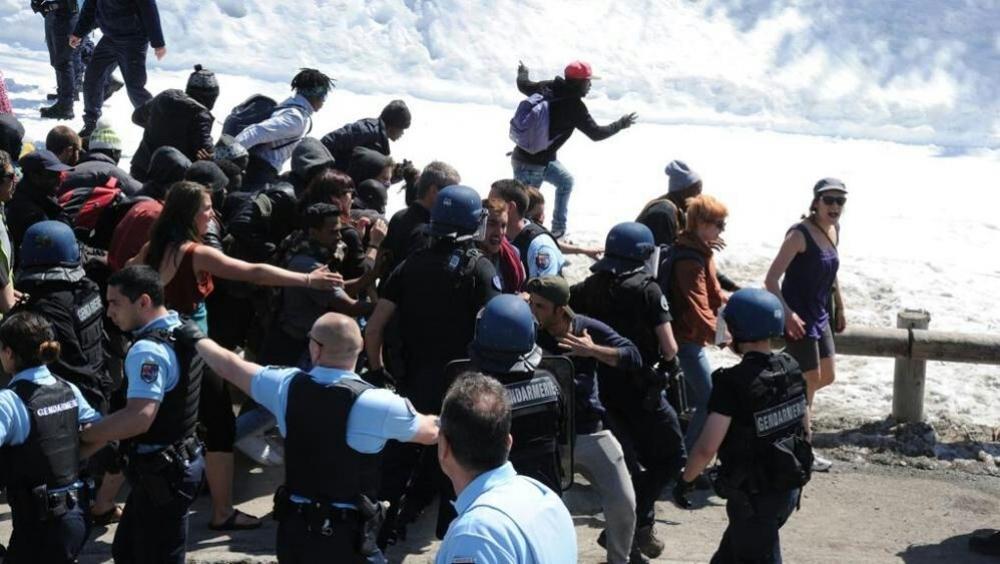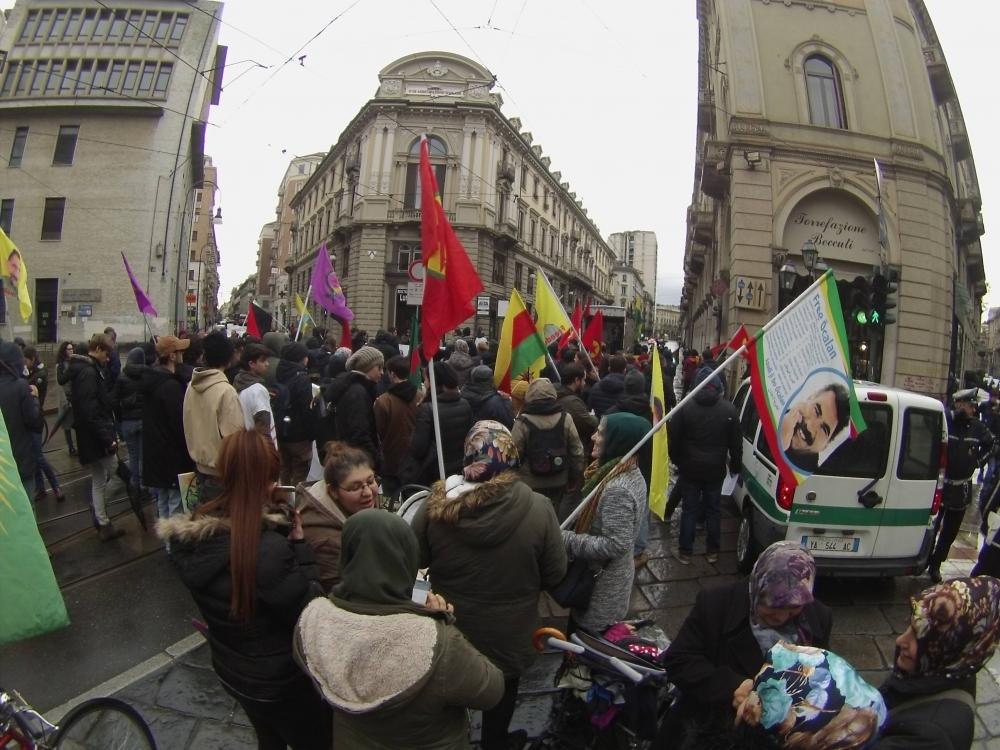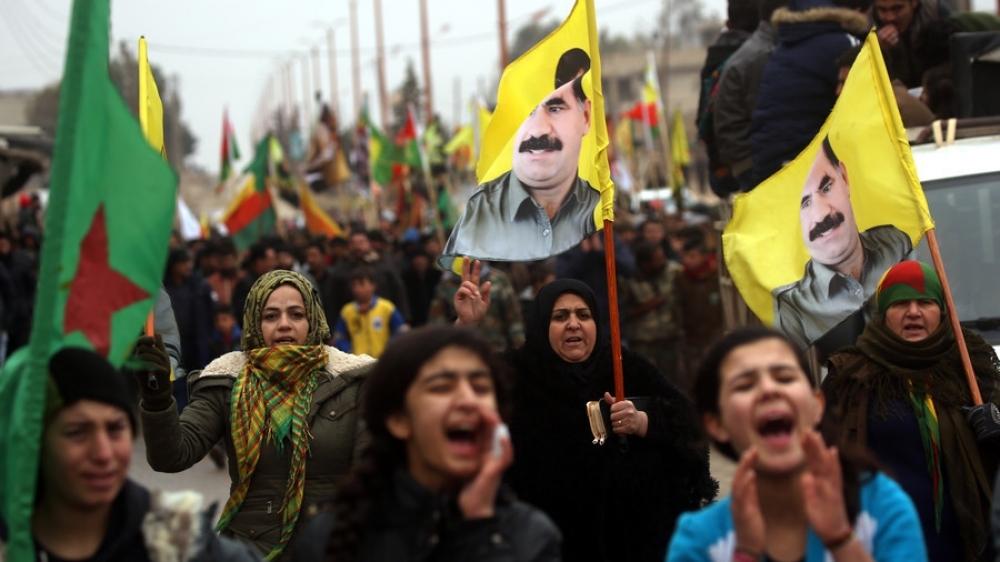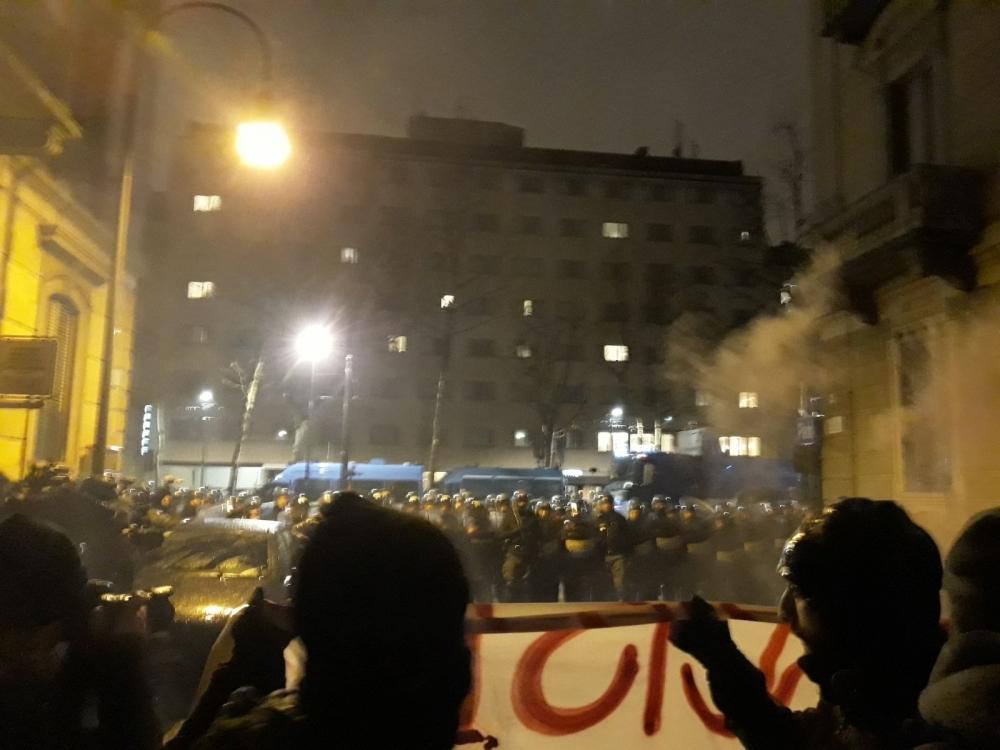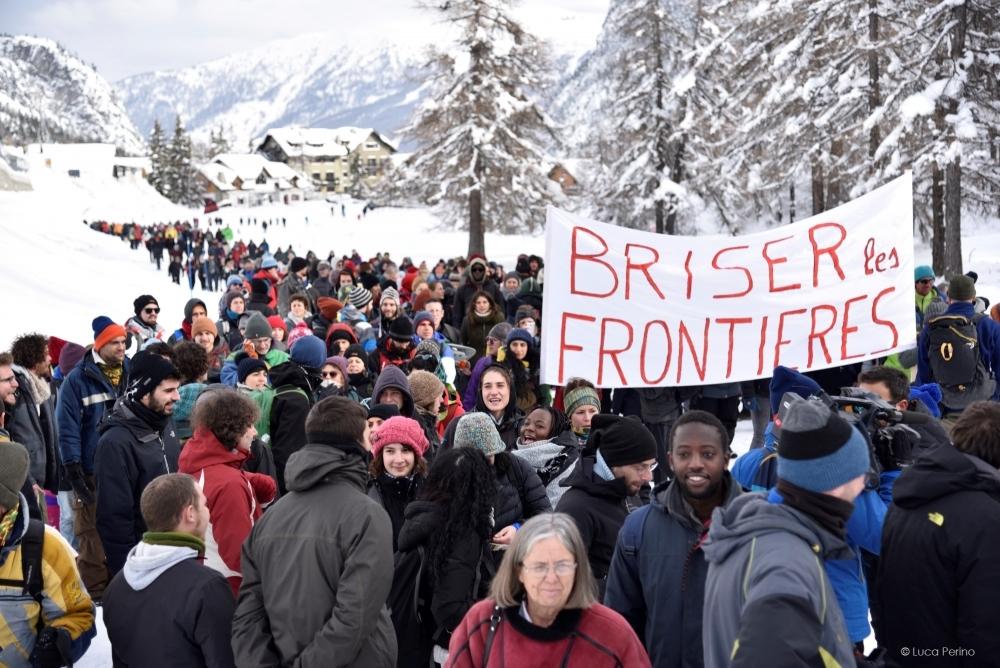WIKILEAKS, FRAGMENTS OF GLOBAL DISORDER
The historical moment in which Wikileaks (WL) acts is decisive: – it’s the moment of the crisis of the United States’ military, political, cultural and technological hegemony.
The fall of the second Wall of the 20th century (‘Wall’ Street) replicates the calls for glasnost (“openness”) and perestrojka (“change”) because, even if within its neoliberalist characterization, democratic ideology has experienced a degeneration.
Reforming the system is the imperative, United States’ planetary overstretching reaches its limits from Iraq to Latin America; the executive power is weak and safeguarded by those who long for a reactionary, fundamentalist and authentically “American” resolution of the ideological crisis.
In this scenery, already complex on its own, a specter is starting to roam around, whispering in the ears of whoever it meets: “information in revolt will be writing history.”
‘Specter’ also seems to us the most appropriate term to describe Assange’s character, both in regard to his physical appearance and for the elusiveness with which he was able to evade international police forces and secret service agencies for quite some time.
Still the WL issue – of which a lot of chapters still need to be written – produces extremely concrete aftershocks, capable of causing deep fractures in the traditional networks of the global news system, in these days crossed by movements of breakdown, decomposition and reconstruction. Fractures that represent a point of no return, expanding themselves 360° and not one-way.
That Italian energy policy is a bitter pill for the US, and that it also is in this way one should read Rome’s approach, first towards Russia and then towards Libya, is no news for anyone since the hostilities between the czar Putin and the Ukrainian government leaders began. Nor are the ENI interests in the construction of the South Stream gas pipeline casual.
That the embrace between Europe and its transatlantic cousin has become less warm and more formal in recent years, and that instead the deployment of the European integration processes – with the fading of their anti-soviet role – represents a concern for the US administrations since 1989, is a traceable fact in any international relations history manual of acceptable quality.
That the attacks against Google of some months ago would stem from the highest spheres of the Chinese government was testified by the target against which they were directed, their frequency, their range and, more in general, the international context in which they were at work. Not only because, since some time by now, the cybersphere is becoming a privileged battleground in the dialectics between the great powers, assuming bigger and bigger weight in the state defense budgets, but also because an ever increasing situation of antagonism between the two bigger global competitors is in development – something which is making unthinkable the presence of a player like Big G in Beijing’s backyard.
WL has to be examined with more ambivalent lenses (which is necessary to start understanding the phenomenon in all its complexity), leaving out deceitfully subjective and specialist perspectives, without forgetting (still retaining the due question marks) that for millions of people today’s mantle of formality which envelops yesterday’s commonly known facts represents a notable gap.
In the same way the barycenter of transparency (that Internet has been moving for several years in a completely asymmetrical way in favour of those who runs the global politics and economy) moved towards the threshold of the sancta sanctorum of US embassies, and this represents a quantum leap (even more in the digital age): an uncovered cauldron which, unhinging one of the distinctive features of diplomatic communication, represents a dangerous anomaly.
But quantum leaps like these are ambivalent: the meaning which they could assume is not defined a priori; it is a match which is still to be played. The billiard ball has been thrown among the others: even the black eight ball might end in the pocket.
First of all: what is WL?
This term cannot just stand anymore for the homonym organization directed by Julian Assange; we should rather refer to a metonymy, a concept that structures other ones, interrelated between themselves on various levels. The effect on the media system is an hybrid object, an explosive mixture, an offshoot of a skillful dosage of different ingredients: old and new media, P2P horizontality and stiff verticality, opacity and transparence.
It is composed by:
In the same way, as reported by the journalist Farhad Manjoo, in WL lives a necessary contradiction: its mission, also symbolized by the slogan shown on its twitter profile account (“We open governments”), is to achieve an absolute transparence through an organizational modality which takes into account a necessary level of secrecy. We are not playing the search for the oxymoron; we are simply restraining ourselves to notice that the anonymity of the sources doesn’t allow to understand which goals animate them. Goals which – it has to be said – could not match those of Assange & co. And this is not an easily overlookable issue (also because of other critical points, which we will examine later).
Therefore, we are also facing a new form of media network. A new way of developing distributed journalism, but not a P2P one. WL disintermediates the traditional information flow and moves on to immediately recreate new levels of intermediation with several cores.
We know that the planning of US military strategy nowadays identifies among its fundamental grounds the claim of US military superiority in providing a securing of the web for ensuring itself a “free access” to cyberspace, identified as a global common.
Therefore, if the WL issue did show the difficulties of the US government in the management of this global common, at the same time it emphasized how the planning on this issue is in an advanced phase of elaboration and implementation.
Which parts of the WL network were successfully hit?
a) The US Department of Justice is entrusted with the fight against “filesharing”: it will be able to prosecute any website that soils itself with copyright infringement.
And continues:
«Aside from classic ‘pirate’ websites, the bill also conveniently provides an effective backdoor to take the whistle-blower site Wikileaks offline, or its domain at least. After all, Wikileaks has posted thousands of files that are owned by the United States»
The “censorship” of such sites will be based on blacklists completely written by the US government. No need to linger on the arbitrariness which will define them.
The coming into force and an effective implementation of such a legislative bill would have unprecedented consequences: the US government could acquire a totally unconventional role, stepping on to carry out duties exclusively performed by the ICANN (yet thoroughly criticized in the last 15 years for its de facto US-led management) until now. A legislative bill holding the US as self-appointed plumbers of the internet network, opening and closing the taps of information with the aim of directing its flow.
Something right now unacceptable for other state and regional players (it’s not a coincidence that the latest warning of the British The Economist goes: “don’t create a digital Afghanistan“). Something that may in turn signify the creation of new and separate systems of dominion in other macro-spaces on the planet, producing a fragmentation of one of the main frames of the global network (which would cease to exist as such). About this issue EFF itself stressed that
«To recap, COICA gives the government dramatic new copyright enforcement powers, in particular the ability to make entire websites disappear from the Internet if infringement, or even links to infringement, are deemed to be “central” to the purpose of the site».
And adds:
«If the United States government begins to use its control of critical DNS infrastructure to police alleged copyright infringement, it is very likely that a large percentage of the Internet will shift to alternative DNS mechanisms that are located outside the US»
Which could be the presumed next moves made against WL?
A. di Corinto claims that «the next step will likely be that of preventing indexation in the search engines of the WL-related web resources» (one has to ask: will Google and Baidu take the same measures?) and, we might add, it has to be understood what move Facebook and Twitter will make who, even if not confirming the hypothesis of excluding WL from their platforms, neither denied it (while instead they did readily cancel accounts and web pages belonging to the organizations that had led in these hours the attacks against the enemies of WL instead).
Finally, two other remarks.
An essay by Mark Pesce traces a parallel between WL’s possible evolution and the filesharing systems. What we imagine to be a good omen actually spots another possible vulnerability of WL, perhaps even deadlier than the DDOS attacks that are hitting it. Assange’s organization bases its reputational capital on the reliability and the truthfulness of the information it releases. In this way it creates an aura of trust around itself, on which the fluid links which it is able to interweave and its society-building action are based. A dynamic very close to that of the big social networks or of the P2P systems. By which means the distribution of copyrighted contents on the filesharing networks was fought? By putting false or forged material up there. Since WL’s sources are anonymous and therefore each single document has to be verified in its authenticity, it has to be asked if a flooding of well-made forgeries sent to WL (we refer to this specific category because Assange himself pointed out that there are hundreds of people sending material to WL) could not somewhat flood the publication mechanism or bypass the control mechanism, leading to the publication and distribution of unauthentic documents: the trust which WL did create around itself right now would be broken.
But the front of the cyberwar features, in turn, plays of light and darkness and has many participants: a cross-party reaction of users and hacker communities (even very different among themselves) brought a counterattack against the financial brokering services Mastercard and Visa, preventing access to them. Applications and web pages were released, thanks to which anyone was able to participate in the attack against the networks that hampered WL’s activity. Moreover, Peter Sunde revived (by no coincidence closely to the wikileaks.org domain blackout) the proposal to create a distributed DNS system, able to resist the meddling of governments and militaries. A proposal that in turn, after the events of these days, could be seriously taken into account by many people, and that would mark the nth break-up of one of the fundamental infrastructures running the web.
And we cannot deny to enjoy a subtle pleasure in noticing how some pseudo-intellectual bloggers who are filling their mouths by now with buzzwords and slogans after celebrating for years the figures of Anna Politkovskaja and Yoani Sanchez, can proudly include Vladimir Putin as well in the ranks of the democratic fighters for “freedom of speech”, while on the other side of the barricade stands Barack Obama, the man for whom the internet was one of the main driving forces in the run for the White House. Thanks to this, but not only, he could set up the broadest political marketing operation ever seen, mobilize the social movements, start a copious fund raising and bring back to the ballot box ample groups of population in such a difficult context as the US’ one; plus, also and above all, he did impress in the collective imaginary the brand of the network and of the open government as something symbiotic to a change that did never came true.
Second. The stance of Amazon and of the other big US transnational corporations in the effort of clogging WL’s network and its branches is a blow from which the prophets of the techno-determinist and neo-positivist optimism will hardly recover. The typically liberal paradigm adopted for years by such people as Negroponte gets smashed as a result: such points as , the call to a diffusion of democratic principles through the development of electronic telecommunications and the consumption of hi-tech products, or the overriding of censorship through the “beneficial power” of the global communication channel may finally sink into oblivion, with the definitive demonstration that digital technology isn’t at all a .
Third. The neo-enlightenmentist dream of Rosseauian legacy of a democracy of individuals that comes into existence in the folds of an anarchical infrastructure dies miserably at the same time as it is reaching one of its great goals: the transparence of power towards the social. The blanket is too short: if it is pulled from one side, it leaves the other uncovered and the individuals, once again, end up being rotating particles around intermedial frames (those of the news and politics) that determine them.
Fourth. That a call for a serious reflection on the concept of the common good applied to the internet is of greater and greater urgency is out of discussion. In such a background as the one which is taking shape in these days, that concept cannot be given neither as fundamental right, nor as something already present in the material relations that shape the internet. Simply, it can be imagined as a conflictual ground. And acted upon as such.
What does this mean? It means that the fractures produced by WL aren’t one-sided at all, as many commentators would like them to be, but that they must be imagined, organized, readdressed in frames according to a grassroots and partisan point of view and used in the making of subjectivities.
Let’s make a counter-example: which effects on a global scale would had sorted a critical re-appropriation of sense through the contextualization of hypothetical, 2003-published “Iraqi War Logs” at the peak of the “No War” mobilizations by the movements’ media, coming along with an appropriate tactical stance in the streets? Their pressure on the anesthetized journalism of the Bush era, and on the authorities themselves would have been unbearable.
Break and continuity, fractures and fragmentations, old and new players: a white-hot crucible of contradictions that cannot be avoided. Even if the picture of an old order is shattered or it gets chipped, the shards which fall on the ground will not immediately establish a new one. It’s up to us pick them up before someone else does. This, or the WL metonymy could take yet another meaning. That of a new spectacular global format to be watched beyond the screen of your LCD TV set or netbook. And little changes if you retweet info or do participate in the televoting: Julian Assange is hosting, while Earth’s powers are at each other’s throat.
(Translated by InfoFreeFlow Crew – thanks to Kemal Kamel and Lilix for their help and support;)
Ti è piaciuto questo articolo? Infoaut è un network indipendente che si basa sul lavoro volontario e militante di molte persone. Puoi darci una mano diffondendo i nostri articoli, approfondimenti e reportage ad un pubblico il più vasto possibile e supportarci iscrivendoti al nostro canale telegram, o seguendo le nostre pagine social di facebook, instagram e youtube.












